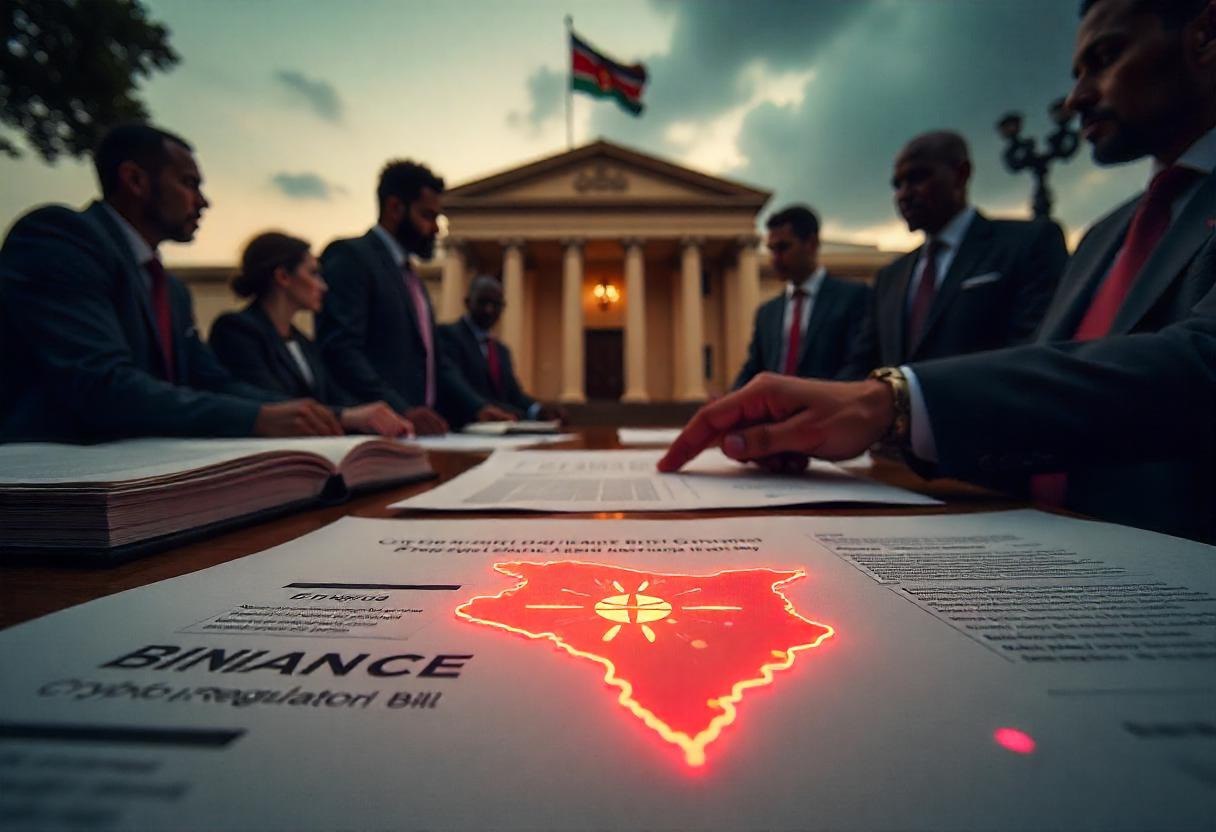- Binance’s Secret $6K Deal with VAC Sparks Worries in Kenya
- Kenya Startups Fear Binance Will Quietly Control Crypto Regulations Through VAC
- Kenya Crypto Firms Warn Binance Ties May Threaten Fair Market Competition
Kenya’s growing crypto sector is now facing a heated debate as local startups raise alarm over the country’s proposed Virtual Asset Service Providers (VASP) Bill. They claim the new law could hand too much power to a lobby group linked to Binance, the world’s biggest crypto exchange. According to documents shared by The Kenyan Wall Street, the regulatory board proposed in the draft law will include a private think tank termed the Virtual Asset Chamber of Commerce (VAC).
Binance Payments to VAC Raise Kenya Crypto Concerns
In the confidential agreement, it is shown that Binance provides VAC with a monthly policy fee of 6,000 dollars per country. In that regard, VAC will give advice on strategy, draft policy structures, and report back to Binance regularly. This contract is raising doubts as to the capability of VAC to transact on its own. This has made many small crypto firms panic that this may be an entrance that Binance can use to control the crypto regulations in Kenya to its benefit.
In addition, Binance is already being highly scrutinized in most jurisdictions. The U.S., Nigeria, and the U.K. regulators have approached the exchange on the basis that it fails to comply with the local laws. Thus, the Kenyan startups do not want to give Binance any better influence, as they are afraid of becoming more lackadaisical in controlling their national crypto space. They fear that once VAC gets one seat beside the key players in the regulation of Kenya in his association with Binance as an employee, there will be fair competition.
One stakeholder warns Kenya’s global image could suffer if regulators favor one big player. They even threatened that the nation might remain on Financial Action Task Force (FATF) and EU greylists, a move that would also adversely affect Kenya in terms of its capacity to attract new business and partnerships.
Binance Link Could Undermine Kenya Crypto Fairness
VAC, on the other hand, has fought to defend its stand. Basil Ogolla, its director, indicated that it has been two years of collaborating with the Parliament, the IMF and the central bank to defend the interest of the industry.
His success is clearly shown in scrapping the 3% transaction tax. Moreover, he helped replace it with a 10% service tax. As a matter of fact, he adds that more than 90 percent of ideas in VAC are presently in the Virtual Assets Bill.
Additionally, VAC says it is open to all crypto players, not just giants like Binance or Circle. Ogolla avers that the Chamber is democratic in its structure which gives equal voice to all its members. He feels that the trust of Parliament indicates that the Chamber is a level voice of the industry and not the tool of a single company.
Earlier this year, John Mbadi, the Kenyan Finance Minister, indicated that they would like a transparent legal framework on crypto. He believes this will help the country use digital assets while managing risks. The government once banned crypto, but many Kenyans still use it every day.
However, lots of startups are skeptical. They are afraid that VAC will develop regulations that favor large foreign companies and bar the entry of local firms. Others also argue that VAC employed the same approach in Rwanda to establish control in the crypto market of that country. With Kenya having decided to vote on the VASP Bill, the end decision will determine who will have a hand in the future ownership of the digital assets in Kenya and whether the voices of the locals will have their turn at all.

